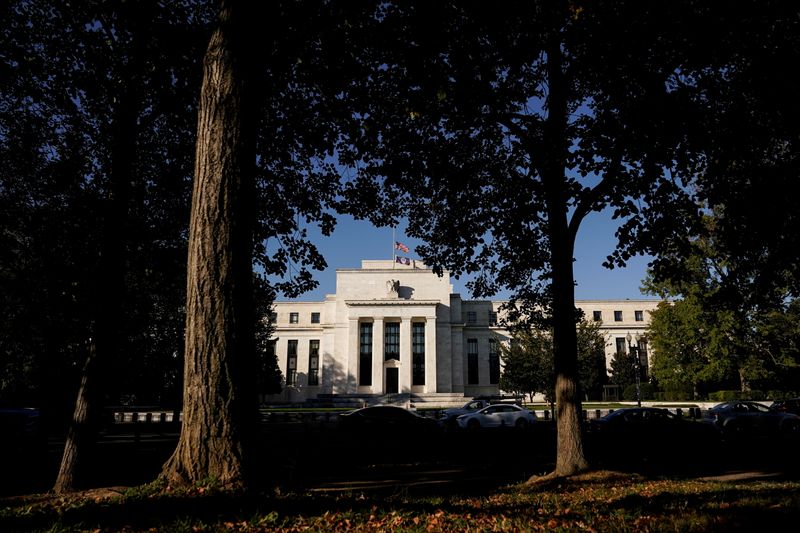Goldman Sachs expects Nvidia ’beat and raise,’ lifts price target to $240
Investing.com - The Federal Reserve’s decision to halt a longstanding balance sheet drawdown could have a larger impact on financial markets in the intermediate term than the central bank’s interest rate path, according to analysts at Wolfe Research.
On Wednesday, the Fed lowered interest rates by 25 basis points to a range of 3.75% to 4% as expected, although the outlook for the trajectory of borrowing costs in the near-term remains mired in a fog due to a dearth of new economic data during an ongoing federal government shutdown.
Separately, policymakers also announced the end to a drive to diminish the Fed’s holdings of Treasuries and mortgage-backed securities, a process known as quantitiative tightening, on December 1.
Since rapidly expanding the size of its balance sheet to help support markets and the wider economy during the COVID-19 pandemic, the Fed has spent much of the past three years trimming away at its holdings. Once at a peak of almost $9 trillion in 2022, the balance has now slimmed down to roughly $6.6 trillion.
Yet the drawdown has threatened to dry up much of the liquidity needed to keep the gears of the financial market churning. The impact of this dynamic has become clear in short-term money markets this month, when banks and others were on the hunt for more cash than there was available to lend. Overnight interest rates rose as a result, at one point surpassing the Fed’s target range.
"[T]he end of QT in December could have a larger impact on the market’s direction over the intermediate term," the Wolfe analysts including Chris Senyek and Adam Calingasan wrote in a note on Thursday. "The Fed’s decision to end the reduction of Treasury Securities points to a changing liquidity picture in the months ahead, with reserves set to potentially shrink."
They added this trend could "negatively impact" sentiment, although this may be followed by "a gradual expansion as asset purchases are once again implemented to match the growth of the banking system."
While fluctuations in reserves are anticipated to sway markets, "the key question" revolves around whether stocks trade on liquidity concerns or on continued expectations for sky-high corporate artificial intelligence spending, the analysts argued.
"We believe the latter over the near-term."
